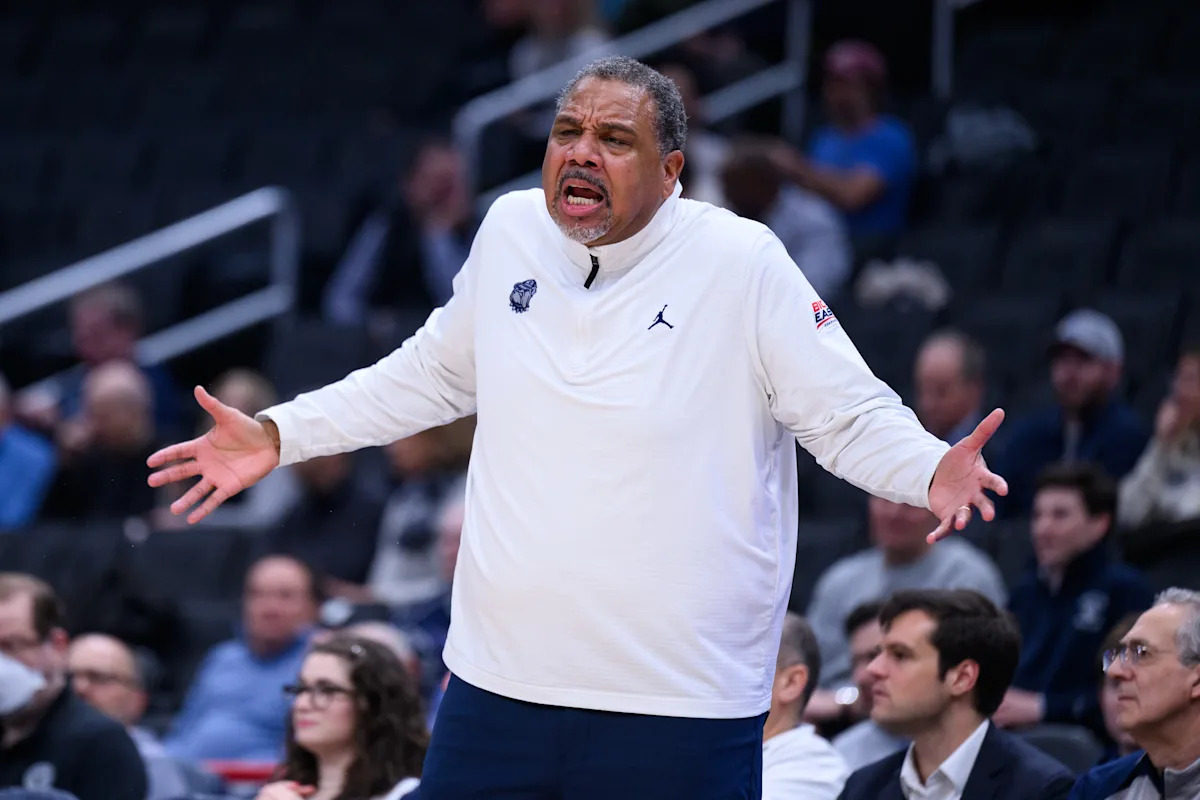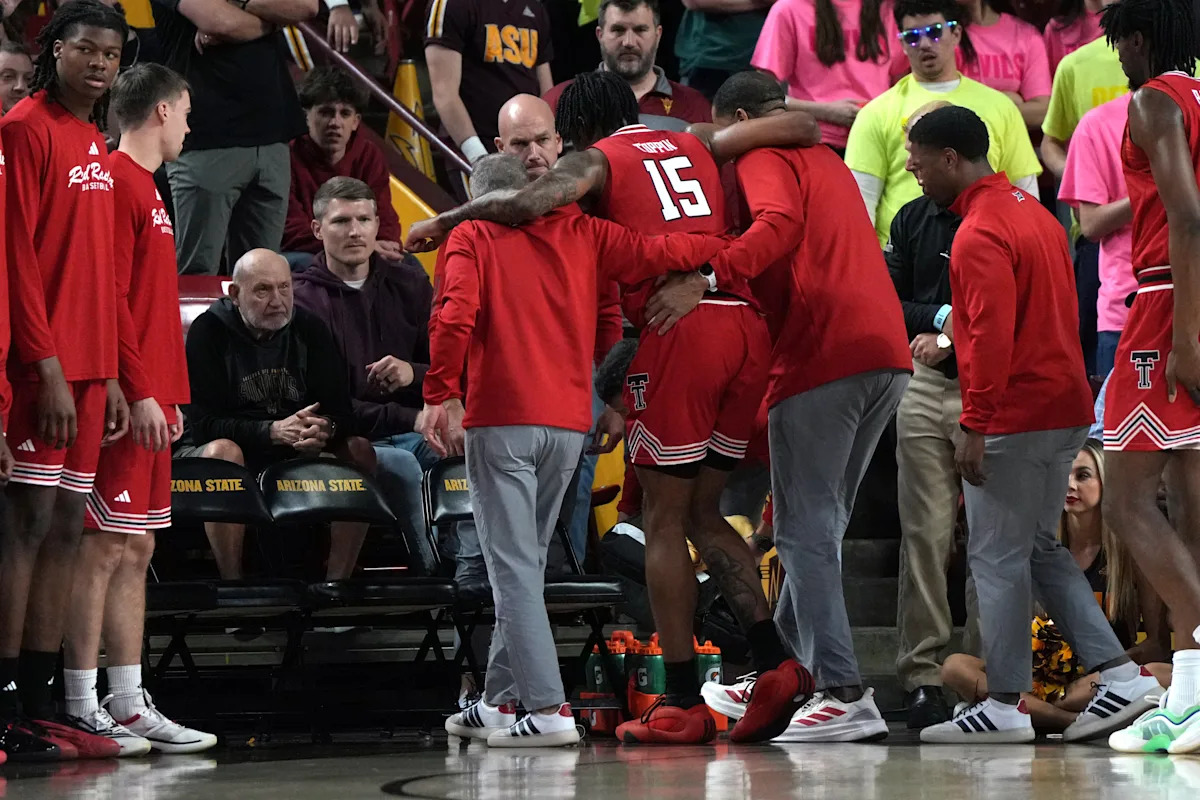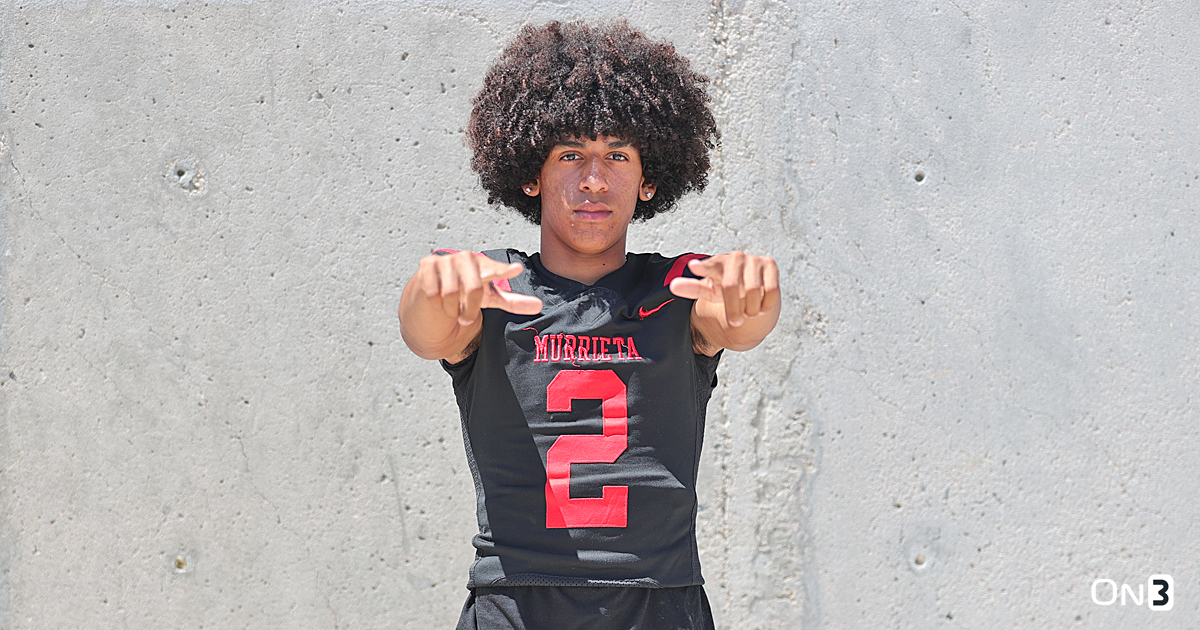This article is part of The Athletic’s series marking UK Black History Month. To view the whole collection, click here.
Great Osobor has yet to play in the NBA but the 22-year-old has nevertheless earned a life-changing amount of money from basketball that will have had some of his peers pocket watching.
After the transformative introduction of name, image and likeness (NIL) payments in 2021, which allows college athletes to be paid for endorsements, Osobor became one of the highest known earners in collegiate basketball in 2024, earning a reported $2 million, according to ESPN. He could not have timed his ascendency better.
Osobor represents one of NIL’s early triumphs and says his friends call him a pioneer. He attracted little attention from leading college programs when he entered the U.S. system from England in 2021 but, within three years, in his final year of college eligibility, had landed a multi-million dollar deal on joining the University of Washington. He was 21.
“I haven’t really touched a lot of it (his earnings). I bought a car and you can do more things for yourself,” Osobor tells The Athletic, speaking from Germany where he has signed a one-year deal with Science City Jena, a team in the country’s first division.
“If you want to go have a nice dinner, you can go have a nice dinner. But I didn’t really do anything crazy: mainly got flights for my parents to come to America whenever they wanted to come watch games. I invested a lot of my money, too.”
Great Osobor playing for Utah State Aggies against the TCU Horned Frogs on March 22, 2024 in Indianapolis. (Dylan Buell/Getty Images)
Osobor, who is a 6ft 8in and 250 lbs (113 kilograms) power forward, was born in Spain to Nigerian parents and later spent his teenage years in England. His name Great comes from the words his parents, John and Mabel, uttered at learning of their family’s impending addition: “God is Great.”
His love of basketball all started when he was an overzealous kid. “I had a lot of energy and it was a bit too much,” says Osobor. “My parents were trying to find ways to tire me out. My aunt and uncle told them they should put me in basketball because my cousin played and it always tired him out.”
Osobor’s older cousin Robinson Idehen played in Division I, the highest level of college basketball, for the University of California, Santa Barbara, and the 27-year-old is now a professional in the Spanish second division for FC Cartagena CB.
“My parents put me in a youth team called Genesis (in the city of Tudela in northern Spain) when I was three, and ever since then, I was playing,” Osobor adds.
After moving to Huddersfield, an industrial town in the north of England with no basketball history, at 12, he had to travel 13 miles north by bus to practice to another city and play for his nearest youth team, the Bradford Dragons. He then attended Myerscough College, a boarding school which has one of the UK’s strongest basketball programs, in Preston, a city about 30 miles north of Manchester ,which is where he would auspiciously meet Englishman Chris Haslam, currently the assistant coach at Oregon State.
“I have a lot of love and respect for UK basketball,” Osobor, who has chosen to represent Spain at international level and played for Spain B in August, says. “You do your whole teenage years somewhere and you feel real close to them, so I’m hoping basketball in the UK keeps growing.”
Fast forward to 2024 and the Washington Huskies made Osobor their marquee signing after joining the Big Ten, the richest conference in college sports, that summer.
“It’s funny because a lot of my team-mates and closest friends, they say I’m an (NIL) pioneer,” says Osobor. “They said I started this whole thing but I just laugh at them when they say that, because I didn’t even think about it like that.”

Great Osobor drives to the basket against Kwame Evans Jr. of the Oregon Ducks on January 21, 2025 in Eugene. (Soobum Im/Getty Images)
Osobor’s college journey wouldn’t have been possible without head coach Danny Sprinkle, whom he still speaks to regularly. The pair moved three times together across Osobor’s four seasons — the typical length of college athlete eligibility — from Montana State to Utah State, and then the Washington Huskies.
“His assistant coach (Haslam) came to see me at my school when I was 16 and from then they were talking to me consistently,” recalls Osobor. “They told me: ‘You can come to a Division I school (Montana State) and play a lot as a freshman’, which is not really the norm.
“He kept his word. I went there, played a lot and we won (the Big Sky conference) in my freshman year. That’s something I always appreciate about him — not sugarcoating things — and he pushed me to be the best version of myself. That’s the kind of people you want to surround yourself with, people that are loyal to you.”
After two seasons at Montana State, Osobor moved with Sprinkle to the Utah State Aggies and led the team with 18 points and nine rebounds per game as they finished top of the Mountain West conference, another step up in the Division I conference ladder.
He was named the league’s player of the year as they reached the National Collegiate Athletic Association’s (NCAA) March Madness round of 32. But after the Aggies’ exit, Sprinkle announced in March he was leaving for Washington.
Osobor entered the transfer portal a month later. This time, as an experienced college player, the big schools knew about him. Lucrative offers came in from Texas Tech and Louisville but, once more, Osobor reunited with Sprinkle — and his NIL deal was signed.
Most Division I college football and basketball players make five-figure NIL earnings, but can earn into the six figures and even millions, with players increasingly trying their luck in the transfer portal to get better deals.
For comparison, the rookie minimum salary in the NBA for the 2025-2026 season is $1.2 million, according to Spotrac. Two-way players, who also appear in the second string G League affiliates of their NBA teams, earn half of the rookie minimum salary of approximately $600,000.
Up until this year, NIL were private transactions, paid by fans, donors or collectives, rather than the universities themselves, which made quantifying these deals difficult.
However, as of July 2025, universities can directly share revenue with college athletes for the first time following House v. NCAA, and all third-party NIL deals for more than $600 must be approved.
“Coach Sprinkle left (Utah State) and then you start hearing what people are willing to offer,” Osobor says. “Then I had to get an agent (George Langberg) to navigate the whole world of it — you can’t do that by yourself these days.
“It was never about the money. I just wanted to go to the best basketball situation that was going to allow me to expand my career. Because not all money is good money, you don’t want to just get paid (by a team) and that sets you back some years. I wanted to go somewhere where I could continue to develop my game, where I could trust the coach and keep improving.
“Being rewarded for your work is awesome and it’s a crazy feeling. It didn’t really hit me until afterwards. I was just focused on picking the right school for my basketball career.”
Osobor flourished at Washington, being the only Big Ten player last season to lead his team in points (14.8), rebounds (8.0) and assists (3.4) per game, but as a team, the Huskies ended bottom of the 18-team conference with a 13-18 record. It was a difficult step up for Osobor, his coach and the team.
After participating in the NBA summer league with the Houston Rockets, Osobor is now a professional in Germany. After just four games, he is the league’s third highest-scorer (18.8) and in his fourth game, recorded 28 points with nine rebounds.
“I feel like the team is learning each game and it’s a good situation for me to be able to keep developing as a basketball player,” Osobor says.
“(Moving to German basketball) came down to where I thought I was going to be able to play the most. I had a few offers in the G League, with NBA teams, but the situation maybe wouldn’t have been the best basketball-wise for me, so we were thinking long term,. I need to keep improving as a player and keep being able to showcase my ability. We thought this was the place to do it.”
Osobor’s bank balance may likely be healthy but his NBA dreams are not quite satisfied yet.


























